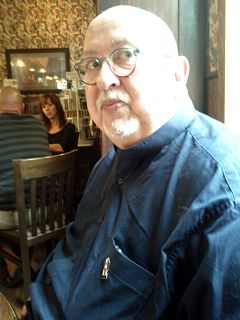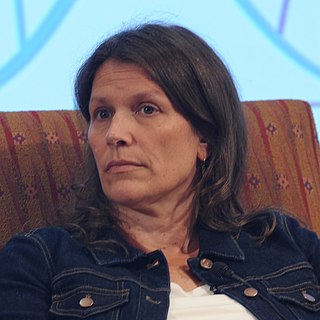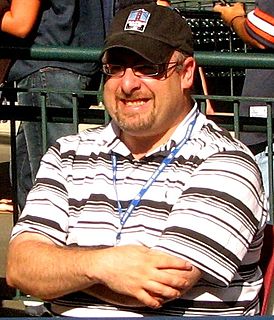A Quote by Orson Scott Card
If you read to your kids you'll make readers out of them, partly because they'll associate reading with good parent time.
Related Quotes
How do you make your kids read more? It needs to be presented as a joy and a privilege to get to do it, and the kids should get to see you as a parent reading for your own pleasure. It's not something you send your kids off to do, 'Go into your room and read for 15 minutes or else.' It becomes a task then.
We have an obligation to read aloud to our children. To read them things they enjoy. To read to them stories we are already tired of. To do the voices, to make it interesting, and not to stop reading to them just because they learn to read to themselves. Use reading-aloud time as bonding time, as time when no phones are being checked, when the distractions of the world are put aside.
We work with tweens. Middle school grades. That's a key time in a young person's literary history. That's the time when they're still open to reading, but there are other things that are starting to interest them that can pull them out of their reading habits. It's a critical time to make the reading habits stick, but at the same time it's not pulling teeth to try to get them to read in the first place.
I was a reader. I loved reading. Reading things gave me pleasure. I was very good at most subjects in school, not because I had any particular aptitude in them, but because normally on the first day of school they'd hand out schoolbooks, and I'd read them--which would mean that I'd know what was coming up, because I'd read it.
The man who doesn't read good books has no advantage over the man who can't read them. It is said that leaders are readers. However if they read trashy magazines for the majority of their time and they never run with the information that they glean from resourceful books, then they may as well have not taken any time to read at all. It is easier to stay out than get out.
Master those books you have. Read them thoroughly. Bathe in them until they saturate you. Read and reread them…digest them. Let them go into your very self. Peruse a good book several times and make notes and analyses of it. A student will find that his mental constitution is more affected by one book thoroughly mastered than by twenty books he has merely skimmed. Little learning and much pride comes from hasty reading. Some men are disabled from thinking by their putting meditation away for the sake of much reading. In reading let your motto be ‘much not many.
Children make better readers than adults. They read as carefully as I write; adults read as a means of getting off to sleep. I get letters saying 'I have read your book seventeen times.' If you're an adult novelist and you get that letter, you should be afraid. You're being stalked. Kids always read them seventeen times!
And if you're a parent who thinks you're okay because your kid doesn't have a phone or iPod yet, and/or you've used all the parent controls to filter out explicit material, you're not okay. The filters are tissue paper and your kid without a phone is on a school bus or in a locker room or at a public park with phone-equipped kids every day. And they're like all kids in exploring - by whatever means available to them - exactly what their parents are treating as too embarrassing or taboo to talk about.



































